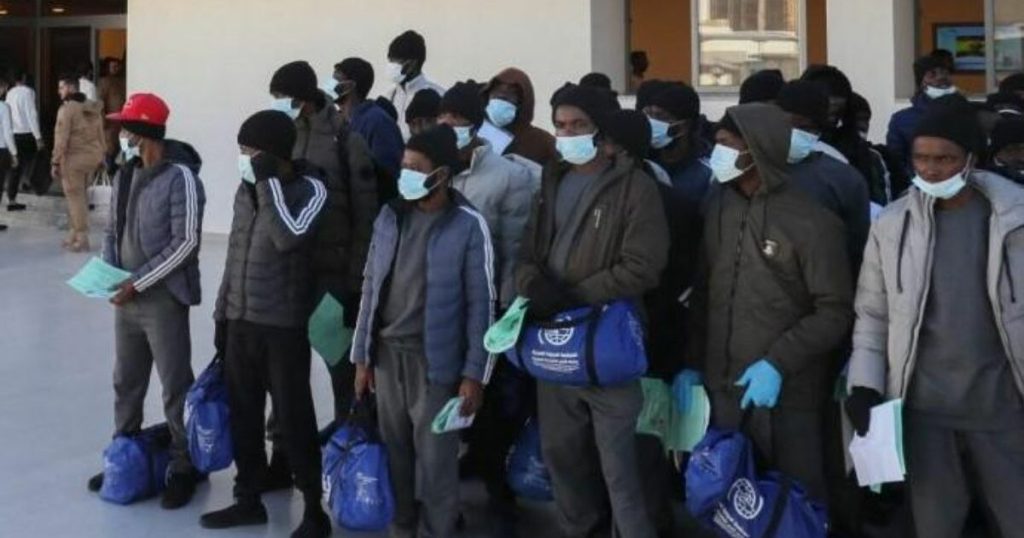The UK government’s recent deportation of 43 individuals to Nigeria and Ghana underscores its commitment to strengthening border security and upholding immigration laws. This action, part of the government’s “Plan for Change,” reflects a broader strategy to restore order to the immigration system by ensuring swift and efficient removal of individuals who lack legal residency. The flight, carrying a mix of failed asylum seekers, convicted foreign offenders, and voluntary departures, emphasizes the government’s resolve to address irregular migration and protect national borders. By collaborating with international partners, the UK aims to establish a more robust and effective immigration system, deterring illegal entry and promoting lawful pathways for migration.
This recent deportation flight represents a continuation of the UK’s efforts to address irregular migration and enforce its immigration policies. The 43 individuals returned to Nigeria and Ghana comprised a diverse group, including those whose asylum claims were rejected, foreign nationals who had served prison sentences, and individuals who opted to leave voluntarily. This multifaceted approach demonstrates the government’s dedication to handling various immigration scenarios, ranging from asylum applications to criminal convictions. The flight signifies the ongoing commitment to prioritizing the removal of individuals without legal status, ensuring compliance with immigration regulations, and maintaining the integrity of the UK’s borders.
The government’s focus on international cooperation is a cornerstone of its approach to managing migration. The partnership with Nigeria and Ghana, highlighted by this deportation flight, exemplifies the UK’s commitment to collaborative efforts in addressing shared challenges. This cooperation extends beyond deportations to encompass broader initiatives aimed at combating organized immigration crime and disrupting the activities of human trafficking networks. By working closely with other nations, the UK seeks to enhance its ability to identify, apprehend, and remove individuals who pose a threat to border security or public safety. This collaborative approach also facilitates the sharing of information and best practices, strengthening the overall effectiveness of immigration enforcement efforts.
The UK’s immigration policy, as demonstrated by the deportation flight and other measures, emphasizes the importance of maintaining a balance between border security and the humane treatment of individuals. The government asserts that all deportations are conducted with dignity and respect, ensuring the well-being of those being removed. While prioritizing the enforcement of immigration laws, the UK acknowledges the need to uphold human rights principles throughout the process. This approach reflects a commitment to balancing security concerns with the ethical treatment of individuals involved in immigration proceedings.
The increased number of deportations under the current government, along with a rise in the removal of foreign national offenders, signifies a shift towards stricter enforcement of immigration laws. This trend aligns with the government’s stated objective of restoring order to the immigration system and prioritizing the removal of those who lack the right to remain in the UK. The focus on deportations, coupled with other initiatives such as closing asylum hotels and streamlining asylum processes, reflects a broader strategy to manage migration more effectively and address concerns about the impact of irregular migration on public resources and social cohesion.
The UK’s collaborative approach to immigration management, exemplified by the recent deportation flight and the broader “Plan for Change,” highlights the importance of international partnerships in addressing global challenges. By engaging with other countries, including Nigeria and Ghana, the UK seeks to enhance its ability to tackle issues such as human trafficking, smuggling, and irregular migration. This collaborative approach also strengthens international efforts to protect vulnerable individuals, disrupt criminal networks, and promote safe and orderly migration pathways. The UK’s commitment to working with international partners reflects a recognition that effective immigration management requires a coordinated global response.


